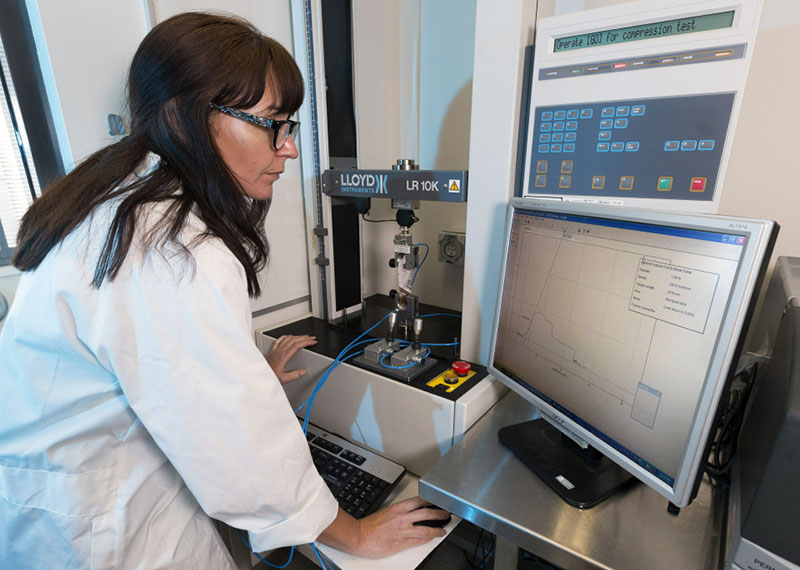Browse our range of reports and publications including performance and financial statement audit reports, assurance review reports, information reports and annual reports.
The Auditor-General responded on 29 October 2019 to correspondence from the Hon Joel Fitzgibbon MP dated 1 October 2019, requesting that the Auditor-General conduct an examination of Federal Government drought funding measures. The Auditor-General provided a follow-up response to the Hon Joel Fitzgibbon MP on 24 July 2020.
Please direct enquiries relating to requests for audit through our contact page.
The Auditor-General responded on 18 November 2019 to correspondence from Mr Andrew Giles MP, requesting that the Auditor-General conduct an investigation to examine the effectiveness of the procurement to deliver a new global visa processing system.
Please direct enquiries relating to requests for audit through our contact page.
The Auditor-General responded on 3 February 2023 to correspondence from Senator Nick McKim dated 10 January 2023, requesting that the Auditor-General conduct an investigation into decisions by the Department of Home Affairs to engage Management & Training Corporation Pty. Ltd (MTC Australia) to run garrison and welfare services in Nauru for refugees and people who sought asylum in Australia.
Please direct enquiries relating to requests for audit through our contact page.
The objective of this audit was to assess the effectiveness of the Department of Immigration and Border Protection’s administration of health services in onshore immigration detention.
Please direct enquiries relating to reports through our contact page.
The Auditor-General responded on 14 December 2016, and followed-up on 19 July 2017, to correspondence from Senator Kakoschke-Moore on 14 November 2016 requesting that the Auditor-General conduct an audit of the National Affordable Housing Agreement (NAHA).
Please direct enquiries relating to requests for audit through our contact page.
The audit objective was to assess the effectiveness of the Department of Infrastructure and Regional Development's regulation of passenger security screening at Australian domestic airports.
Please direct enquiries relating to reports through our contact page.
The objective of the audit was to assess the effectiveness and value for money of Defence’s acquisition of a Battle Management System and a Tactical Communications Network through Land 200 Tranche 2 Work Packages B–D.
Please direct enquiries through our contact page.
The acting Auditor-General responded on 26 August 2024 to correspondence from the Hon Paul Fletcher MP dated 30 July 2024 and follow-up correspondence dated 14 August 2024, requesting that the Auditor-General conduct an investigation into the investment in PsiQuantum announced by the Australian and Queensland governments on 30 April 2024.
Please direct enquiries through our contact page.
The objective of the audit was to assess the effectiveness of the Australian Taxation Office in achieving revenue commitments established under specific Budget-funded compliance measures.
Please direct enquiries relating to reports through our contact page.
The Auditor-General (A/g) responded on 24 September 2015 to correspondence from Senator Glenn Lazarus on 10 September 2015 regarding National Stronger Regions Fund.
Please direct enquiries relating to requests for audit through our contact page.
The Auditor-General responded on 2 May 2022 to correspondence from Senator Rex Patrick dated 5 April 2022, requesting that the Auditor-General conduct an investigation to examine the process in making statutory and other senior appointments across the whole government over the six months preceding the application of caretaker conventions prior to the 2022 Federal election.
Please direct enquiries relating to requests for audit through our contact page.
The objective of the audit was to assess the effectiveness of the administration of the Defence Home Ownership Assistance Scheme by the Department of Defence and the Department of Veterans’ Affairs.
Please direct enquiries relating to reports through our contact page.
The objective of the audit was to assess the effectiveness of the Australian Taxation Office’s administration of the personal services income regime.
Please direct enquiries relating to reports through our contact page.
The Auditor-General responded on 17 April 2025 to correspondence from Senator the Hon Michaelia Cash dated 21 March 2025, requesting that the Auditor-General conduct an investigation to examine the Incolink grant.
Please direct enquiries through our contact page.
The objective of the audit was to assess the effectiveness of the Department of Health’s and Australian Hearing’s administration of the Community Service Obligations program for hearing services.
Please direct enquiries relating to reports through our contact page.
The objectives of the audit were to assess agency performance in relation to compiling their Internet contract listings as required by the Senate Order and the appropriateness of the use of confidentiality provisions in Commonwealth contracts. The audit involved a review in seven agencies of the processes used to compile their Internet contract listings and the use of confidentiality provisions in contracts.
The Auditor-General responded on 10 September 2021 to correspondence from Mr Adam Bandt MP dated 25 August 2021, requesting that the Auditor-General conduct an investigation into the management of the Beetaloo Cooperative Drilling Program.
Please direct enquiries relating to requests for audit through our contact page.
The objective of this audit was to assess the progress made by DoHA and Medicare Australia (recommendation 3) in addressing the four recommendations from ANAO Audit Report No.50, 2000–01 designed to improve the administration and performance of NCSP.
The objectives of the audit were to assess agency performance in relation to compiling their Internet listings as required by the Senate Order and the appropriateness of the use of confidentiality provisions in Commonwealth contracts. The audit involved a detailed examination in seven agencies of the processes used to compile their Internet listings and the use of confidentiality provisions in contracts.
The audit objective was to assess the Tax Office's effectiveness in administering the tax obligations of non-residents.
The audit objective was to assess the effectiveness of the Department of the Environment and Energy's award of funding under the 20 Million Trees Programme.
Please direct enquiries relating to reports through our contact page.
The objective of the audit was to assess the effectiveness of the administration of the Improving School Enrolment and Attendance through Welfare Reform Measure.
Please direct enquiries relating to reports through our contact page.
The objective of the audit was to assess the effectiveness of the Department of Veterans’ Affairs’ administration of residential care payments.
Please direct enquiries relating to reports through our contact page.
The objective of this audit was to assess whether the Department of Veterans’ Affairs is efficiently delivering services to veterans and their dependents.
Please direct enquiries through our contact page.
The audit objective was to assess the effectiveness of the Department of Human Services’ management of the trials of intensive service delivery for customers with complex needs.
Please direct enquiries relating to reports through our contact page.
The Auditor-General responded on 19 November 2021 to correspondence from Senator Malcolm Roberts dated 28 October 2021, requesting that the Auditor-General clarify issues relating to the Disaster Recovery Funding Arrangements.
The Auditor-General received further correspondence about this matter from the Chief Executive Officer of the Queensland Reconstruction Authority, Mr Brendan Moon on 6 June 2022.
Please direct enquiries through our contact page.
The Auditor-General responded on 7 June 2021 to correspondence from Senator Sarah Hanson-Young dated 10 May 2021, requesting that the Auditor-General conduct an investigation to examine the federal government’s spending on offsets for the Western Sydney Airport.
Please direct enquiries relating to requests for audit through our contact page.
The objective of this audit was to assess Army's progress in addressing the issues previously identified in Defence reviews and ANAO audits as affecting the Army Reserve's capability; and Identify the extent that the Army Reserve is capable of contributing to contemporary Australian Defence Force capability requirements through fulfilling its assigned roles and tasks.
The acting Auditor-General responded on 27 June 2024 to correspondence from Senator Andrew Bragg dated 5 June 2024, requesting that the Auditor-General conduct an investigation to examine the contract for legal services between King & Wood Mallesons and the Department of Industry, Science and Resources regarding PSI Quantum.
Please direct enquiries through our contact page.
The objective of the audit was to assess the effectiveness of AGD's administration of grants provided under the Respondents Scheme. The audit considered the context within which the Respondents Scheme operates and focused on assessing the administration of the scheme including its financial management within AGD.
The Economic Security Strategy (ESS) campaign is intended to inform the community of aspects of the Australian Government's response to the global financial crisis. This component of the campaign is designed to raise awareness, among those for whom English is not a convenient language, of the financial assistance available, in the form of lump sum payments, and of access and eligibility requirements.
The ABHI campaign is an information campaign, largely in cooperation with other states (excl Victoria) which promotes improved public health and reduced incidence of chronic disease. This component of the campaign takes a culturally relevant approach and includes advertising content and messages delivered through Indigenous media channels.
The Auditor-General responded on 5 January 2021 to correspondence from Ms Kristy McBain MP dated 14 December 2020, requesting that the Auditor-General review the governance and outcomes of a 2019 tender process seeking leased office accommodation for the Department of Defence.
Please direct enquiries relating to requests for audit through our contact page.
The acting Auditor-General responded on 29 February 2024 to correspondence from Hon. Catherine King MP dated 29 January 2024, requesting that the Auditor-General to conduct an assurance review of the Australian Maritime Safety Authority’s (AMSA) Aids to Navigation (AtoN) procurement.
Please direct enquiries through our contact page.
The objective of the audit was to assess the effectiveness of the Tax Office’s administration of the LCT, including aspects of the tax administered by Customs on behalf of the Tax Office.
The Auditor-General responded on 22 June 2017 to correspondence from Senator Sarah Hanson-Young dated 31 May 2017, requesting that the Auditor-General conduct an audit of the current and historical funding practices of the Catholic Education Commissions.
Please direct enquiries relating to requests for audit through our contact page.
The objective of the audit was to assess the effectiveness of the Bureau of Meteorology’s implementation of the Improving Water Information Program.
Please direct enquiries relating to reports through our contact page.
The Auditor-General has received correspondence from Senator David Shoebridge dated 23 May 2025, requesting that the Auditor-General conduct a review of the expenditure and disclosures of the Federal Court. This request is under consideration and the response will be published here.
Please direct enquiries through our contact page.
The objectives of the audit were to: assess the effectiveness of the key evaluation methods used to review the efficacy of the Australian Government's national counter-terrorism coordination arrangements; and examine the effectiveness of the links between the key evaluation methods, and how the key evaluation methods contribute to the process of continuous improvement.
The objective of the Liquids Aerosols and Gels (LAGS) Trials is to assess the capability of various screening technologies to detect explosives in LAGs, with the ultimate objective of providing information to the Australian Government on the effectiveness and efficiency of the screening technology (in aviation security). The proposed public awareness strategy aims to raise awareness of the Trials amongst the travelling public, encourage their participation, and inform them of their rights and obligations during the Trials.
The Digital Switchover campaign aims to provide all Australians with a smooth transition from analogue to digital television by 31 December 2013. The first phase of this campaign aims to raise awareness and provide general information to people about the Digital Switchover. This phase includes the introduction of a labelling scheme, to identify whether TVs are digital ready or require a set top box.
The campaign's objectives are to encourage people, for whom English is not a convenient language, to lodge an 07/08 tax return and to update their address and direct deposit details with the ATO, to manage expectations about the arrival date for the payments and provide information about what to do if the payments are not received.
The ABHI campaign is an information campaign, largely in cooperation with other states (excl Victoria) which promotes improved public health and reduced incidence of chronic disease. The campaign aims to update public perceptions on lifestyle choices and risk factors leading to obesity and resultant disease. It is anticipated that people will take positive action to be more active and modify their diet, leading to a reduction in instances of diseases.
To examine the effectiveness of the Department of Health and Ageing’s administration of the Access to Allied Psychological Services Program.
The Auditor-General responded on 26 April 2023 to correspondence from the Hon David Coleman MP dated 29 March 2023 and 12 April 2023, requesting that the Auditor-General conduct a full investigation into the design and administration of Round 6 of the Mobile Black Spot Program.
Please direct enquiries relating to requests for audit through our contact page.
The campaign's objectives are to encourage people to lodge an 07/08 tax return and to update their address and direct deposit details with the ATO, to manage expectations about the arrival date for the payments and provide information about what to do if the payments are not received.
The campaign is a community awareness campaign designed to raise awareness of Australia's quarantine laws and of the particular risks of bringing foreign items into Australia.
First Home Saver Accounts are a new initiative to assist eligible Australians to save for their first home through a combination of government contributions and low taxes, in superannuation style savings accounts with account providers. The campaign will set the context for the new initiative and raise awareness. The campaign elements are to articulate the eligibility criteria, individual obligations, entitlements and accessibility rules, as well as explain the respective roles and responsibilities of account providers and government administrators and regulators.
The objective of the audit was to determine whether the POI information recorded by Centrelink accords with relevant policy and thereby effectively supports informed decision-making regarding eligibility for the payment of various benefits to Centrelink customers
The audit examined the range of support made available to ADF personnel making the transition from military to civilian life, the extent to which the assistance is utilised, the cost to Defence of such assistance and the relevant responsibilities of those who deliver assistance.
The overall aim of the National Drugs Campaign is to contribute to a reduction in the uptake of illicit drugs among young Australians, by raising awareness of the harms associated with drug use and encouraging and supporting decisions not to use. It is also intended to encourage young people using methamphetamines to reconsider their use and direct them to relevant support, counselling and treatment services.
The campaign for the National STI Prevention Program is designed to inform young Australians aged 15-29 years about the transmission, symptoms, treatment and prevention of STIs, and encourage safe sexual behaviour to contribute to a reduction in the prevalence of sexually transmissible infections among this age group.
The campaign's objectives are to encourage people to lodge an 07/08 tax return and to update their address and direct deposit details with the ATO, to manage expectations about the arrival date for the payments and provide information about what to do if the payments are not received.
The campaign's objectives are to raise awareness of the harms and costs to young people, their families, communities and society associated with drinking to intoxication, to encourage young people and their parents to question the acceptability and impact of intoxicated behaviour, to highlight the influence that parental attitudes to alcohol misuse and adult behaviour and drinking to intoxication can have on others and provide referral and support information for those who recognise a need to seek help.
The objective of the Liquids Aerosols and Gels (LAGS) Trials is to assess the capability of various screening technologies to detect explosives in LAGs, with the ultimate objective of providing information to the Australian Government on the effectiveness and efficiency of the screening technology (in aviation security). The proposed public awareness strategy aims to raise awareness of the Trials amongst the travelling public, encourage their participation, and inform them of their rights and obligations during the Trials.
The objectives of the campaign are to increase knowledge and awareness of the Education Tax Refund, the need to keep receipts, eligibility requirements, and how to claim the refund, with the overall objective of encouraging eligible Australians to make a claim for a rebate.
This phase of the campaign (phase two) is designed to communicate information and raise awareness about the First Home Owners Boost amongst potential first home buyers, through limited media (print/ radio/ digital/ outdoor advertisement) supported by marketing collateral.
The Economic Security Strategy (ESS) campaign is intended to inform the community of aspects of the Australian Government's response to the global financial crisis. This campaign is designed to raise awareness of the financial assistance, in the form of lump sum payments, including access and eligibility requirements. Phase One is targeted at over five million pensioners, carers, seniors, people with a disability, veterans and families.
The objective of this audit was to assess the effectiveness of DIAC’s administration of the character requirements of the Citizenship Act.
The audit objective was to assess the effectiveness of DoHA's management of CACPs in fulfilling the legislated objectives of the program.
The Auditor-General responded on 16 June 2021 to correspondence from Senator Malcolm Roberts dated 19 May 2021, requesting that the Auditor-General conduct an investigation to examine the administration of Natural Disaster Relief and Recovery Arrangements programs and funding.
Please direct enquiries relating to requests through our contact page.
The objective of this audit was to assess how effectively the Defence Science and Technology Group (DSTG) administers the science and technology work it undertakes for the Australian Defence Organisation.
Please direct enquiries relating to reports through our contact page.
The Auditor-General (A/g) responded on 23 September 2015 to correspondence from Ms Julie Collins MP on 1 September 2015 regarding parliamentary entitlements paid to Liberal MPs and Senators.
Please direct enquiries relating to requests for audit through our contact page.
The audit focussed on performance information reporting by the submarine System Program Offices on reliability, safety systems and logistic support services. In the context of the sustainability arrangements, the audit considered combat system upgrades and personnel escape and rescue systems. Any arrangements that the Commonwealth may be considering regarding the potential sale of ASC were not within the scope of this audit.
The Auditor-General responded on 29 March 2019 to the follow-up correspondence from the Hon. Mark Dreyfus QC MP dated 26 March 2019. Mr Dreyfus requested that the Auditor-General extend his investigation to look at the conduct of a range of parties in relation to the announcement of grants. This is in addition to the request to investigate the conduct of a range of parties in relation to the announcement of the grant to the Yankalilla Bowling Club, which was the subject of the original correspondence dated 24 February 2019.
Please direct enquiries relating to requests through our contact page.
The objective of the audit was to provide an independent assurance on the effectiveness of the management of the upgrade of the M113 fleet for the Australian Defence Force (ADF). The audit sought to identify the initial capability requirements and approval process; analyse the contract negotiation process; and examine the management of the project and contracts.
The objective of the audit was to assess the performance of the Child Support Agency in the administration of key aspects of the Child Support Scheme. The ANAO previously audited the CSA in 1993-94 and identified scope for improvement in the management and administration of the Child Support Scheme. Particular areas of audit concern included client service, staff training and debt management. The current audit has reviewed the CSA's progress in improving Agency performance since that time. The audit focused initially on the areas identified in the previous audit, but also sought to identify further opportunities for improvement where appropriate.
The Auditor-General responded on 29 March 2019 to correspondence from Ms Cathy McGowan AO MP dated 5 March 2019, requesting that the Auditor-General investigate the conduct of a range of parties in relation to the announcement of grants under Round 3, Building Better Regions Fund.
Please direct enquiries relating to requests through our contact page.
The acting Auditor-General responded on 24 September 2024 to correspondence from Senator the Hon Richard Colbeck dated 27 August 2024, requesting that the Auditor-General conduct an investigation to examine the COVID-19 Vaccine Claims Scheme.
Please direct enquiries through our contact page.
The audit was conducted as a joint financial statement and performance audit of HIC's IT systems. The objective of the financial statement component of the audit was to express an opinion on whether HIC could rely on its IT systems to support production of a reliable set of balances for the financial statements. The objective of the performance audit component was to determine whether HIC's IT systems' outputs met quality and service delivery targets.
The ANAO’s SES Remuneration, Performance and Development Policy establishes the principles and procedures that apply to all SES employees and to those staff acting in SES roles. All ANAO SES employees are covered by common law agreements which set out the core conditions and terms of employment, including remuneration.
Please direct enquiries through our contact page.
The Auditor-General (A/g) responded on 15 September 2015 to correspondence from Ms Michelle Rowland MP on 7 September 2015 regarding administration of the Mobile Black Spot Program.
Please direct enquiries relating to requests for audit through our contact page.
The audit reviewed the fraud control arrangements in the Department of Family and Community Services (FaCS), a policy formulation, and advising body and major purchaser of social welfare services from Centrelink. The objective was to assess whether FaCS had:
- implemented appropriate fraud control arrangements in line with the Fraud Control Policy of the Commonwealth and that these arrangements operated effectively in practice; and
- fulfilled its responsibilities as a purchaser of services in relation to fraud control.
This audit is one in a series of fraud control audit and is complemented by a similar audit of Centrelink, a major provider of services on behalf of FaCS.
The audit was undertaken in the Training and Youth Division TYD) of the Department of Education, Training and Youth Affairs. The objective of the audit was to determine whether the application of Business Processing Reengineering(BPR) principles would identify improvements to the business processes of the TYD. The TYD was used in this audit to illustrate the application of BPR as a tool for agencies to identify efficiencies and enhance program effectiveness.
The audit was conducted as a joint financial statement and performance audit of DVA's Information Technology (IT) systems. The objective of the financial statement component of the audit was to express an opinion on whether DVA could rely on its IT systems to support production of a reliable set of financial information for the financial statements. The objective of the performance audit component was to determine whether DVA's IT systems outputs adequately met quality and service delivery targets.
The Auditor-General responded on 20 August 2021 to correspondence from Mr Julian Hill MP dated 26 July 2021, requesting that the Auditor-General conduct an investigation to examine the efficiency, effectiveness, quality and integrity of partner visa processing by the Department of Home Affairs.
The Auditor-General has received follow-up correspondence from Mr Julian Hill MP dated 27 August 2021.
Please direct enquiries relating to requests through our contact page.
The objective of this audit was to assess the efficiency and effectiveness of the Commonwealth's management of the Great Barrier Reef as implemented by the Authority. This audit was undertaken because of the environmental significance of the Great Barrier Reef Region; its growing economic importance; recent changes to the Authority's budget arrangements; and because the Authority had not been subject to a performance audit since its establishment approximately 20 years ago.
The audit objective was to determine whether organisations had implemented adequate control frameworks and processes to mitigate the risks associated with GST obligations and transactions. The scope of the audit covered all aspects of GST processing relating to the revenue and expenditure accounting cycles in six Commonwealth organisations. Audit testing of transactions was based on a statistical sample of 160 GST transactions at each of the organisations.
The Auditor-General responded on 17 June 2021 to correspondence from the Hon Mark Dreyfus QC, MP dated 21 May 2021, requesting that the Auditor-General conduct an investigation to examine how part-time members of the Social Services and Child Support Division and “sessional part-time members” in the Migration and Refugee Division of the Administrative Appeals Tribunal are being remunerated.
The Auditor-General provided a follow-up response to the Hon Mark Dreyfus QC, MP on 17 December 2021.
Please direct enquiries relating to requests for audit through our contact page.
The audit was conducted as a joint financial statement and performance audit of Centrelink's Information and Technology (I&T) systems. The objective of the financial statement component of the audit was to express an opinion on whether Centrelink could rely on its I&T systems to support production of a reliable set of financial information for the financial statements. The objective of the performance audit component was to determine whether Centrelink's I&T systems outputs adequately met quality and service delivery targets.
The audit examined whether the Department of Health and Ageing had the performance information necessary to administer the Australian Health Care Agreements. A strong focus of the audit was accountability for performance given the significant size of Commonwealth financial assistance, more than $29.6 billion over 5 years, provided to the States and Territories for the provision of health care services.
The objective of the audit was to assess the efficiency and effectiveness of the National Registration Authority's strategic and operational management, particularly the assessment and registration activities. The audit criteria took into account the scope for the application of risk management principles which are integral to strategic and operational management.
This performance audit is the first property management audit that the ANAO has conducted since the FMA Act came into effect in 1997, with the associated devolution of responsibility to agency heads. The audit included coverage of office accommodation currently leased in Australia from the private sector. This office accommodation was housing the functions and activities of clerical, technical or professional staff, including conference and meeting rooms and ministerial suites but excluding basements, car parks, theatrettes, and cafeterias.
The Auditor-General responded on 6 April 2016 to correspondence from Senator Hanson-Young on 30 March 2016 regarding Refugee resettlement deal established between the Commonwealth Government of Australia and the Kingdom of Cambodia in September of 2014.
Please direct enquiries relating to requests for audit through our contact page.
The overall objective of the audit was to determine whether Health's management and operation of selected IT systems:
- met industry better practice;
- met quality and service delivery parameters set by Health and, if applicable, by the Government; and
- operate effectively, efficiently and economically.
The audit applied selected processes from CobiT (Control Objectives for Information and Related Technology) to assist with the assessment of key aspects of Health's management and operation of IT. The audit builds on ANAO's earlier IT audits using CobiT.
The audit sought to assess the efficiency and effectiveness of the ADF's management of fuel and lubricants and to identify possible areas for improvement. The audit focused on major aspects of the fuel supply chain, in particular the strategic management of fuel (eg. the coordination of fuel requirements and stockholding policy). The audit also reviewed fuel procurement practices, storage and handling issues. The audit coverage addressed the fuel supply aspects of these matters rather than transport, distribution and equipment issues. Although directed principally towards operational fuels, the audit took into consideration issues associated with ADF's requirement for oils and lubricants.
The audit process involved an assessment of the payroll arrangements in Commonwealth organisations. The objectives of the audit were to determine whether organisations have established internal control frameworks for the management of payroll operations, assess whether payment of salaries and related expenditures is made in accordance with the relevant terms and conditions of employment, and identify better practices in the management and operations of payroll systems.
The audit evaluated the effectiveness of the accountability and oversight arrangements for statutory bodies within the former Primary Industries and Energy portfolio (most of which are now part of the Agriculture, Fisheries and Forestry portfolio). The audit focused on accountability of the statutory bodies to the Minister and through the Minister to Parliament; it did not directly address accountability to industry stakeholders and levy papers.
The audit reviewed management of the Commonwealth's role in preparing for, and managing, pest and disease emergencies requiring a rapid response. The audit focused on the role of the Department of Agriculture, Fisheries and Forestry -Australia (AFFA), which is the Commonwealth Department with primary portfolio responsibility for coordinating the national and international response to an emergency. The audit did not address preventative measures such as quarantine and border controls; controlled release of exotic diseases or pests; or emergencies associated with previously known endemic diseases, food safety or chemical residue issues.
The objective of the ANAO audit was to identify possible areas for improvement in the Australian Defence Force's management of its Reserve forces. The audit focused on major aspects of the Reserves including roles and tasks, force structure, capability, training, individual readiness, equipment, facilities, recruitment, retention, conditions of service and administration. The audit covered the Australian Naval Reserve, the Australian Army Reserve and the Royal Australian Air Force Reserve. However, due to its size and cost, the Army Reserve was a major focus of the audit activity.
The audit reviewed the sale of DAS Interiors Australia, a business unit of the Department of Administrative Services, which provided a range of services covering strategic advice and accommodation planning, design and documentation, and supervision of office fit-outs. The objectives of the audit were to review the efficiency and effectiveness of the management of the sale.
The objective of the audit was to assess the economy, efficiency and administrative effectiveness, including accountability, of the management of boat people by the Department and the providers of major related services to DIMA such as: the Coastwatch Service within the Australian Customs Service and the Australian Protective Service within the Attorney-General's portfolio. The audit examined key issues in the management of boat people largely from a risk management perspective. The audit conclusions are presented in terms of: the economy, efficiency and administrative effectiveness, including the accountability, of operations; and the administrative functions which support the management of boat people, such as detection, reception of boats and costs.
The audit reviewed the accountability framework and performance information of the Australian Sports Commission (ASC). The objective of the audit was to form an opinion on the efficiency and effectiveness of the ASC: accountability arrangements, focussing on key stakeholders such as the Minister and the Parliament; and management information systems, focussing on performance information, in particular key performance indicators; and its use in resource allocation decision-making.
The audit reviewed the efficiency and effectiveness of Defence's management of Naval Aviation Force (NAF) in achieving its required capability within budgeted resources. The objectives of the audit were to assess whether planning, management and resource allocation mechanisms and practices for NAF were conducive to achieving the latter's objectives in a cost-effective manner.
The audit process involved an assessment of the accounts receivable function in eight Commonwealth organisations. The objectives of the audit were to assess whether the processing, collection and overall management of the accounts receivable function was being performed in accordance with applicable legislation, government policy, applicable internal controls, and identify better practices in accounts receivable activities.
The IIF program is designed to redress the low level of provision in Australia of high risk venture capital for small new technology - based companies commercialising research and development. The objective of the audit was to determine whether the IIF program was being effectively managed by the Industry Research and Development (IR&D) Board and the Department of Industry, Tourism and Resources to achieve the program objectives. The audit focused on corporate governance arrangements for program administration, the selection process to award licences, the safeguards to protect the Commonwealth's financial interests, management of licence agreements, and program performance management. The audit also examined program results to date from available data.
The audit reviewed the implementation of the purchaser/provider arrangements between the Department of Health and Aged Care and Centrelink. The objective of the audit was to determine the administrative effectiveness of the implementation of the service delivery arrangements between Centrelink and the Department by examining project planning for, and management of, the implementation, and the establishment of on-going purchaser/provider arrangements.
The objective of the audit was to assess DIMIA's management of offshore measures to prevent and detect unlawful entry, and to identify opportunities for improvement. The audit did not cover the processing arrangements, referred to as the Pacific Strategy, introduced as part of the legislative changes in September 2001. Nor did it cover the range of measures use for prevention and detection at the border and on shore. As DIMIA is the lead agency responsible for the development of immigration policy, the audit focussed in the administrative effectiveness of the governance framework used by the department to implement and to support the achievement of Government strategies to prevent unlawful entry to Australian Territory.
The audit covered major program elements within the Department of Primary Industries and Energy and Environment Australia that are managed:
- directly by DPIE or Environment Australia;
- through the One-Stop-Shop project assessment process administered by the States/Territories; or
- by non-government organisations.
The purpose of the audit was to examine and benchmark the administrative processes established for these programs. The primary focus of the audit was to draw on the best elements of past practice (particularly in relation to programs involving the One-Stop-Shop) and highlight any shortcomings so that the risks to program effectiveness and accountability could be addressed in the implementation of the Natural Heritage Trust.
The audit reviewed the planning and management of the Australian Defence Force deployments to East Timor, including the support of those deployments. The audit focused on planning for the deployments and the role of Australia as the lead nation in the International Force in East Timor (INTERFET); and financial, personnel, logistic and other systems used to deploy and sustain Australia's military presence in East Timor.
The audit reviewed the processes involved in the sale of one-third of Telstra. The objectives in auditing the sale were to assess the extent to which the Government's sale objectives were achieved; assess the effectiveness of the management of the share offer; assess whether the sale arrangements adequately protected the Commonwealth's interests; and facilitate improved administrative arrangements for future share offers.
The objective of the audit was to examine the effectiveness of the management and control framework established by the Australian National Training Authority to assist its administration and achievement of its objectives. The ANAO's investigation was limited to an analysis of ANTA's internal administrative framework. The audit work focused on key components of the framework: planning, monitoring, and financial and control frameworks.
The audit reviewed the management of trust monies in five Commonwealth organisations. The objectives of the audit were to:
- assess whether selected Commonwealth organisations were managing trust monies in accordance with legal and administrative requirements and better practice principles;
- identify better practices in the management of trust monies; and
- recommend improvements in the controls and practices relating to the management of trust monies.
The objective of the audit was to examine how efficiently and effectively the Australian Customs Service administers the Passenger Movement Charge, including the interim arrangements with airlines. The audit was intended to provide guidance to ACS on key issues and areas of risk it should address in developing the system supporting the collection of PMC. Audit criteria were determined to consider how well revenue was protected and how well the administrative arrangements were operating. The audit sought to identify areas for improvement in the formulation of longer-term arrangements.
The objective of the audit was to review the efficiency, economy and administrative effectiveness of departmental activities leading to the letting of the contract with SPCL and its subsequent administration. This included, among other things, an examination of action taken to protect the Commonwealth's interests and the adequacy of relevant departmental guidelines and processes. A primary aim of the audit was to identify the facts of the particular case, including any administrative inadequacies that led to unnecessary financial exposure for the Commonwealth and less than satisfactory outcomes. In particular, the audit aimed to identify elements of better practice that could be followed under similar circumstances or programs in the future.
The audit reviewed the construction of facilities for the Australian Defence Force and the Department of Defence by the Defence Estate Organisation. The objective of the audit was to assess the efficiency and administrative effectiveness of the Organisation's project delivery function, highlighting effective practice and, where appropriate, making practical recommendations to enhance facilities project management. The main projects examined were the facilities required for the Army Presence in the North and the Russell Hill Redevelopment.
Causes and Consequences of Personnel Postings in the Australian Defence Force The audit arose from a Defence Efficiency Review (1997) recommendation that Defence could make savings on the large volume of postings it made every year. The audit examined the posting process and sought to provide assurance that Defence had identified and examined salient postings issues and was addressing them effectively.
The audit objective was to assess the effectiveness of the National Health and Medical Research Council's governance and administrative systems. In order to achieve this objective, the audit addressed three criteria to determine whether the Council had: identified its legislated responsibilities and monitored its legislative compliance; a sound corporate governance framework to support the performance of its legislated functions; and established robust administrative systems to support the performance of its legislated functions.
The audit objective was to examine the administrative effectiveness of the ATO's use of AUSTRAC data. The audit reviewed the use of AUSTRAC data across three of the ATO Business Service Lines (BSLs) namely, Large Business and International (LB&I), Small Business (SB) and Individuals Non Business (INB). These are the most significant BSLs in terms of revenue collection. The audit focussed on the ATO's use of AUSTRAC data at the strategic and operational levels and its management of AUSTRAC data. Aspects examined include the ATO's relationship with AUSTRAC as well as training, data quality, data privacy and security issues.
The audit examined the management of software licensing by five Commonwealth agencies. The objective of the audit was to provide assurance to these agencies and the Parliament that:
- effective controls are in place to ensure the physical security of software media;
- the risks associated with the use of illegal software are being effectively managed; and
- compliance with software licence conditions is being adequately monitored.
The Commonwealth electoral roll is managed by the Australian Electoral Commission (AEC) and lists the names and addresses of people entitled to vote in federal elections. The objectives of the audit were twofold. The first objective was to provide an opinion on the integrity of the electoral roll, for the purpose of the audit, integrity was defined as accuracy, completeness, validity and security. The second objective was to examine the effectiveness of the AEC's management of the electoral roll in ensuring the roll's integrity.
Please direct enquiries relating to reports through our contact page.
The ANAO reviewed arrangements for the development of the department's fraud policy, fraud risk assessment and fraud control plan within the core functional areas of the department that are responsible for these activities. The audit also examined the operational procedures and guidelines that were in place to implement the department's fraud policy. The objective of the audit was to assess whether AFFA has implemented appropriate fraud control arrangements in line with the Fraud Control Policy of the Commonwealth and whether these arrangements operate effectively in practice.
An Assurance and Control Assessment audit of recordkeeping was undertaken across four Commonwealth organisations to assess whether their recordkeeping policies, systems and processes accord with requirements under the Archives Act 1983, with relevant government policies, and with accepted standards and recordkeeping principles; and to identify better practices and recommend improvements. The audit addressed both electronic and traditional records.
The objective of the audit was to assess the Commonwealth's administration of the Automotive Competitiveness and Investment Scheme (ACIS) . The audit reviewed program governance, scheme promotion and registration, management of credit allocations, and compliance processes.
The audit reviewed the administrative effectiveness of ComSuper in providing benefits to members of the CSS and PSS. The objectives of the audit were to assess the effectiveness of ComSuper's performance in regard to the establishment of new purchaser/provider arrangements; the integrity of the ComSuper databases for the payment of CSS and PSS benefits; and the accuracy and effectiveness of benefit processing and payment for resignation, retirement and retrenchment.
The purpose of the audit was to assess whether management of parliamentary workflow by the agencies reviewed was efficient and effective and to identify elements of good practice. In assessing agency effectiveness and efficiency, the audit focussed on issues of client service such as timeliness, quality and cost. It considered also the governance framework and accountability arrangements relevant to parliamentary workflow, as well as more operational considerations including the use of information technology, development of relevant management information and suitable benchmarking processes.
The objective of the performance audit was to review the progress in the delivery of contractual commitments for Industry Development (ID) for the five contracts awarded under the IT Outsourcing Initiative. In particular, the audit examined the effectiveness of the monitoring by DCITA of achievement against contractual commitments for ID; assessed the impact of changes to the IT outsourcing environment on the management and monitoring of ongoing ID obligations; and identified practices that have improved administrative arrangements.
The objectives of the audit were to determine the administrative changes made by the Australian Tourist Commission (ATC) to implement the recommendations of recent administrative reviews and to identify how well the ATC is meeting its statutory objectives. The criteria used in conducting the audit included administrative improvements resulting from the ATC's response to recent reviews and the extent to which strategies and performance information address its statutory objectives.
This audit examined the management of contracts for business support processes in eight Commonwealth organisations-six operating under the Financial Management and Accountability Act 1997, and two operating under the Commonwealth Authorities and Companies Act 1997. The objectives of this audit were to:
- provide assurance on the effectiveness of the management of contracted business support processes in selected organisations; and
- identify and disseminate better practices in related contract management.
The Australian Taxation Office (ATO) is the Commonwealth's principal revenue collection agency. In 1998-99, the ATO accounted for total tax revenue of $135.3 billion. The objective of this audit was to review the ATO's administration of penalties, with particular emphasis on its corporate governance framework and issues relating to consistency, effectiveness and accountability of penalty administration. In particular, the audit examined the administration of two penalty types, Late Lodgement and Tax Shortfall, as case studies.







